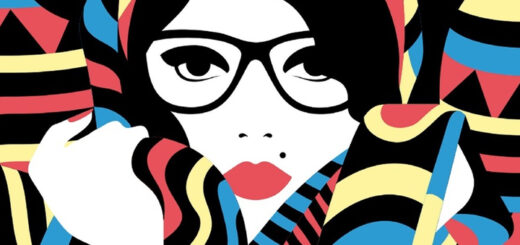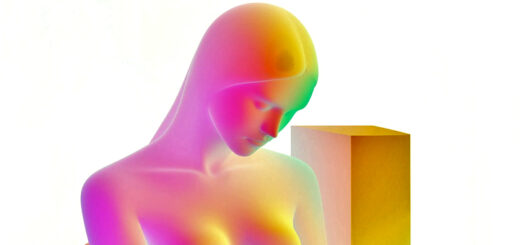What can teach everyone the spiritual path of LGBTQ+ people
Text by Dominica Applegate*, published on Whosoever ** (United States) on January 11, 2020. Freely translated by the volunteers of the Gionata project.
When I left the open, I was just over 30 years old and I was very involved in a conservative evangelical church. It was not customary to hear positive things from the pulpit on the LGBTQ+community. Indeed, it was firmly preached as a wicked and sinful.
Married to a man, with three teenagers, and living in a society in which homosexuality was still a taboo, sitting week after week praying a God in which I believed he had not created me "heterosexual".
The more prejudiced, the more I listened. The more I asked myself questions about rather important issues. And I made quite important decisions.
Needless to say, once the news that I was leaving my husband to "be a lesbian" was widespread, I was no longer welcome to that church.
More than ten years have passed, and although it was an emotionally difficult path for a few years, today I can look back and appreciate the lessons that my family and I have learned about ourselves, on others and on God.
See, I had been in a path of "research of God" for over a decade in the Church. I wanted to know and serve God to the best of my skills - as a wife and as a mother.
But inside I knew I was trying to adapt to a heterosexual world like lesbian. I was following the flock, terrified of making coming out, so I was closed in the closet and closed inside myself.
Until when the question: "Who really am?" He screamed in my head so strong that I could no longer ignore it.
I understand what it means to grow in a world where you don't feel safe in being who you really are. In my time, the children could be removed from the house of a mother if she came out as a lesbian. Today, perhaps it is no longer so, but there is still a lot of fear about living what we feel true about ourselves in terms of sexuality.
However, knowing and recognizing our truth - in terms of sexuality, we can learn many precious lessons along our LGBTQ+path.
Who am I? The big questions
It is common that men and women begin to ask the great existential questions usually in their thirty or forty years. It is usually when they tried all sorts of things "out there" to try to find a sort of inner peace and joy and remained empty -handed.
I started to question my sexuality at 17, but I have not accepted it for almost 20 years. I turned to the Church to help me suffocate those desires - even to the god of the Church, but did not work for me.
When I had enough of the emotional hell, I really started digging and questioning myself in the depths of my being. I traced a line in the sand and said that I would no longer accept social programming. I was ready to live according to the truth of who I really was.
At that time, I didn't worry much about what the relationship of all the others with God was. It became more personal for me: what was and he was becoming my relationship with this inner mystery.
My LGBTQ+ path helped me to start and take the habit of looking for answers within me rather than outside. It still helps me to look beyond the mask that we wear so often, and in depth in the soul.
Mark Thompson, who wrote Gay spirit/gay soul, sees the LGBTQ+ community as "soul bearers in a world that prefers to live on the surface ".
The detractors of the LGBTQ+ community for any reason tend to refuse to look beyond the surface. They see a self-identified label and judge it, together with the person, hard. However, many in the LGBTQ+ community have worn their work boots to make a real personal and spiritual excavation with the question: "Who are they really?" In the foreground in their minds.
Any spiritual path can teach to embrace hundreds of different things: authenticity, humility, patience, compassion, kindness, peace, and so on.
The LGBTQ+ spiritual path is no exception. It is only that they can be stimulated in the younger age due to the questioning of sexuality, often in adolescence or in the early years of adulthood.
A spiritual path
Any spiritual path begins with questions like "Who am I?" And "What is my purpose?" We want to know our unique identity.
It is about being able to integrate our unique identity, not always so popular, in our lives, today and in the future. The world takes it in a way (heterosexual), but we are invited to be who we really are, freeing ourselves from religious expectations.
The LGBTQ+ spiritual path should not be so different from the heterosexual one, because the spiritual plan does not concern those who attract you intimately.
It concerns understanding and spiritual growth. Whether you are a lesbian, gay, bisexual or transgender, you are truly the same in your nucleus - a radiant spirit created by a powerful God.
One thing I love of spirituality is that we must not choose between our sexuality and our spiritual beliefs. We can be authentically who we really are - that is, spirit - and present ourselves in the world like LGBTQ+ in a way that makes sense for us - hopefully with love and compassion.
* Dominica Applegate is the author and writer with a focus on emotional well -being, spirituality and relationships. He wrote several books on personal growth and inner healing.
** Whosoever is an Ecumenical American magazine, founded in 1996, dedicated to the spirituality and faith of LGBTQ+people. Its goal is to offer theological reflections, testimonies and resources for those looking for a path of inclusive faith, overcoming the refusal and the discrimination often encountered in traditional religious communities.
Original text: What the LGBTQ+ Spiritual Journey Can Teach Anyone






